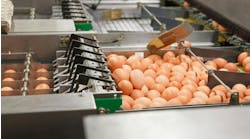The FDA needs a faster, more streamlined response to deal with disease outbreaks, the agency concluded in an internal review of its response to the baby-formula crisis.
The agency’s 10-page review calls for more training and staffing, especially of plant inspectors; better information technology systems to track and exchange data, and generally updated emergency response systems.
The report did not assign blame for the baby formula shortage to any particular individual. “We’re not going to spend a lot of time going back,” FDA Commissioner Robert Califf told Politico. “We’re going to spend our time taking into account what happened then and moving forward.”
The baby formula shortage is ongoing, although Califf said FDA data shows an 80% in-stock rate. The Abbott Laboratories plant at the center of the shortage, in Sturgis, Mich., only started making Similac, Abbott’s mainstream baby formula brand, a few weeks ago and is still not operating at capacity, according to the Politico account.
That plant was closed in February after two infants died from cronobacter infection after consuming formula produced there. The plant was closed after traces of cronobacter bacteria were found in the plant, although that strain of the bacteria was never directly linked to the deaths.

